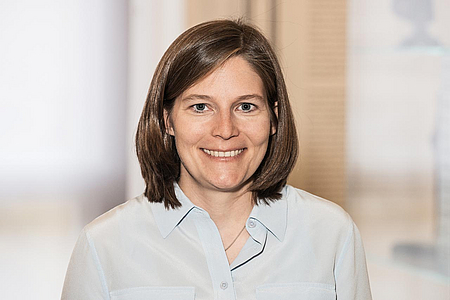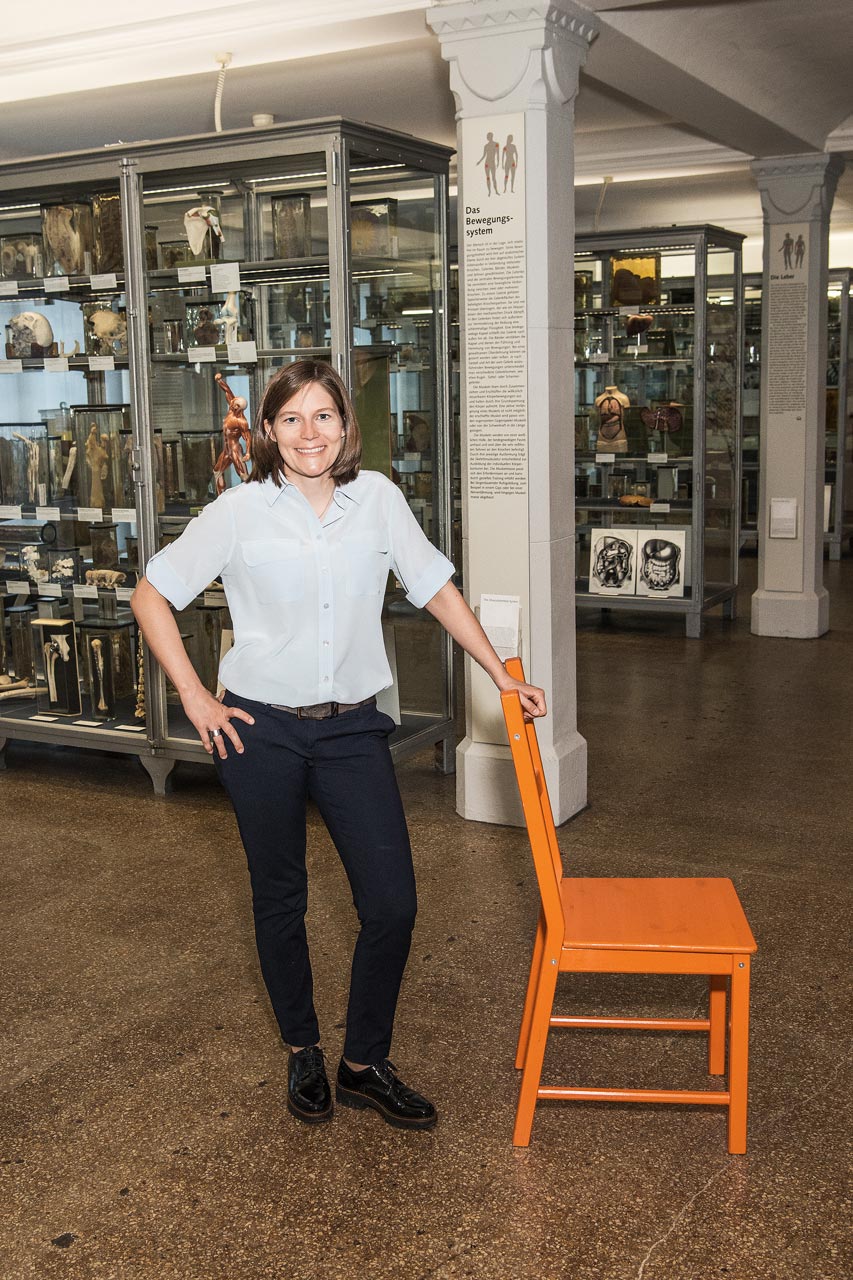The end of after-work research – the future of clinician scientists?
At the intensive care unit, it turns out to be extremely difficult to plan a break for an interview – so to make sure she was available for emergencies at all times, without further ado we visited BIH Charité Clinician Scientist Wibke Schulte on the spot, by the passageway doors. As a Berliner by choice, who came back to Germany from the USA in order to be able to combine research and clinical work, we had a few questions to ask her.
Dr. Schulte, you research sepsis. Most people have some sort of concept of what it means. How would you explain sepsis?
Most people have already heard the term at one time or are familiar with sepsis as "blood poisoning". Sepsis is a systematic inflammatory reaction – that is, an imbalance in the immune system. However, as there are no specific symptoms, we need to explain to the general public again what it means if a person’s in hospital with a case of sepsis. Many relatives have no conception of what it is. We should explain to them that it’s an extremely serious condition and that patients recover from it to varying degrees.
Does this disease receive enough attention in everyday clinical practice?
Every doctor has seen patients with sepsis – precisely because it can take such different forms and there are so many causes. But it’s difficult to recognize a case of sepsis quickly and to treat it appropriately. At the moment, I’m working in the intensive care unit – sepsis is one of the main conditions there. That’s why everyone who’s spent time working in the intensive care unit is familiar with the therapy. There are guidelines and sepsis campaigns.
How long do you usually attend a patient with sepsis at the intensive care unit?
It can vary a great deal. Sometimes, we admit patients with sepsis, and in the best-case scenario we only attend them for one to two days until they’ve stabilized. However, in the worst-case scenario, that can also last for several weeks. It depends whether further complications appear and how old or how sick a patient already is.
How did it happen that you not only work at the clinic but also decided to do research?
Initially, I wrote an experiment-based doctoral thesis in biochemistry and, through my PhD supervisor, came to a laboratory at Yale University, where I was able to conduct experiments for several months. That motivated me to further pursue this direction. So, after my studies, I wanted to continue working in research. I was able to return to the USA on a research grant. There, I expanded the subject of my doctoral thesis and using a mouse model, I studied the role of a certain protein, a cytokine called Macrophage Migration Inhibitory Factor (MIF), in peritonitis or in a resulting sepsis.

Funding program
BIH Charité Clinician Scientists
Funding period
2018 – 2021
Project title
The role of MIF in human acute peritonitis
Research area
General and visceral surgery
Institution
Charité – Universitätsmedizin Berlin
Since 2017
Resident physician at the Department of Surgery, Charité – Universitätsmedizin Berlin
2012 – 2017
Research stay and clinical activity at Yale University and Yale-New Haven Hospital, Connecticut, USA
2005 – 2011
Medical degree and doctorate at the RWTH Aachen University
It was a very nice research environment. I also completed the first years of my advanced specialist training as a visceral surgeon at Yale New Haven Hospital. However, in the USA, you work 80 hours a week during your time as an assistant surgeon – which doesn’t leave much time for research. That was why I decided to return to Germany. In Berlin, the Clinician Scientist Program of the Stiftung Charité caught my attention, as it’s very well organized and structured. In the research building at the Charité Virchow-Klinikum, there’s a large experimental surgical research department which is, in my view, even better equipped than the surgical research laboratories of Yale University. As a clinician scientist, I’m now trying to juggle research and clinical work at the same time.
What exactly is a cytokine and why is it that you’ve been researching the same protein for so many years?
Cytokines are proteins that control the responses of the immune system. The MIF protein seems to play a role in many diseases, infections and inflammatory processes. There are almost 5000 scientific articles on MIF. Recently, my former PhD supervisor organized a symposium at which 70 international scientists focused on just that one protein for a full three days. So there are many approaches that I can still pursue.
Was it always clear to you that you wouldn’t stay only in basic research, but that there would have to be a clinical connection too?
Yes – in fact, that’s why I decided against studying a natural science. You can derive questions for experiments from the findings obtained at the clinic:
it’s more difficult the other way round. Of course, if a patient has septic shock, I’m primarily concerned about their survival. However, at the moment there are only symptomatic therapies for sepsis, so we still need to work more on uncovering the cause in order to develop more specific therapies.
Career paths for clinician scientists are currently developing extremely rapidly. Why do you think that is?
Physicians have been combining clinical work and research for decades, but it was always after-work research. Meanwhile, research has become so complex and so much is being published that it’s no longer constructive to work only at the weekend or after work. In order to be able to concentrate and to work productively, you really need a period of leave. When I took my final examination in 2011, the first Clinician Scientist Program had recently been launched. I would have liked there to have already been a program with a scientific focus during my studies, as there is in the Anglo-American academic world. In that case, I would also have studied for longer. In Germany, this development has only just begun in the past few years.
Besides research, is there anything else for which you urgently need time?
I enjoy participating in national and international congresses and I combine that with a few days’ holiday. However, if you do additional weekend and night duty at the clinic, you have to make sure that you don’t overdo it and that you spend the occasional weekend in Berlin too. (laughs)
Despite your workload, you give an impression of being really relaxed. Are you content with the way things are going for you?
I am content. It may take a bit of time until my project gets off the ground, but I like working in the intensive care unit very much too. My BIH Charité Clinician Scientist Program began during the holiday period, which is why it was difficult to get leave from the clinic any sooner. However, at the end of October I’m flying to the USA for the Surgeons’ Congress, and in November I have my first research month.
October 2018 / MM
